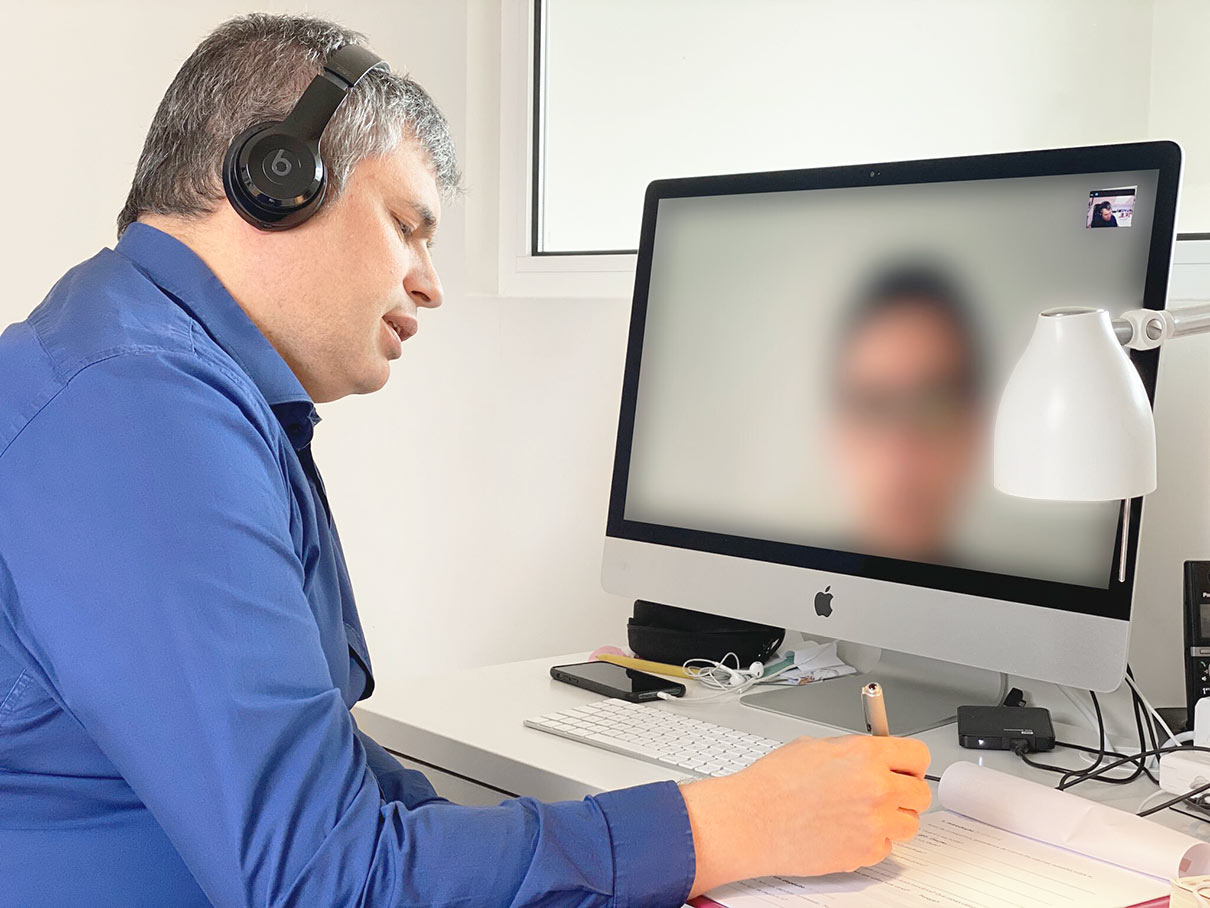Getting insights from users wherever they are
Remote research is any research study in which the participant and the facilitator are in two different physical locations. They don’t interact in-person, but rather in an online setting. It’s typically conducted via a computer or a phone, allowing the researcher to see or hear (using screen-sharing software, for example) exactly what the participant sees or hears.
Remote research will help provide rich data to make informed decisions about a product or a service. It’s ideal for getting insights from end-users who may be located anywhere in the world.

When to go for remote research?
To choose the best research methodology for a study, it’s important to take into account three main aspects:
-
Target audience
We must consider if the study’s target audience is comfortable with technology. Testing with younger professionals works well because they’re generally at ease with online meetings and screen sharing. On the other hand, if the study involves elderly people it can become complicated to set up remote testing as they tend to have a lower computer literacy.
-
Budget
Remote research is typically more cost-effective, since there are no travel costs or facilities rental, and when multiple rounds of tests need to be conducted.
-
Research objectives
The method should always depend on the research ultimate goals.
Types of remote research
Surveys
They’re a flexible tool that can be used to answer a variety of research questions at any stage of the product development process. It can be used to collect qualitative data from a small group of participants or quantitative data from a larger sample to be analysed statistically.
Remote interviews
The researcher talks to users about what they think about a certain topic and to understand their current behaviours and practices. They can take place simply using a phone. However, they can be much richer if they also include video. That allows the researcher to have a deeper connection with the participant and take facial expressions into account.
Moderated remote usability testing
The facilitator can watch users perform the tasks on their own computer and in the comfort of their home. When researching a website, a web app or a software instead of just talking about the experience, the facilitator can follow the participant’s online navigation and ask follow-up questions during the test.
Unmoderated remote usability testing
There is no real-time interaction between the researcher and the participants. They use online tools and services to complete the tasks and eventually answer a few questions built into the study. Unmoderated research can be used to gather performance data from a large number of participants on a specific set of tasks.
Remote international research
When developing a product or a service that will be launched in several countries it might be useful to take into account their specific cultural realities. Testing remotely can make it easier to gather the opinions and experiences of a wide and diverse audience and it’s also a great solution for teams with limited budgets who can’t afford travel and accommodation costs.
Advantages of conducting remote research:
-
More at ease and honest participants
Participants might feel more relaxed in their natural environment and potentially be more honest about the experience.
-
Easier to test products with geographically dispersed users
Participants can be recruited across the country rather than concentrated in just one city or even in multiple countries.
-
Quicker and cheaper recruitment
Recruitment can be quicker and cheaper since participants won’t need travel to the research facilities.
-
Easier to access specific user groups
Participants with a specific job function or specialised expertise, for example.
-
Allows a large number of observers
Project stakeholders like developers, project managers and marketers can observe test sessions remotely.
-
Participants use their own equipment
Participants can use the hardware and software they use on a day-to-day basis.
-
Get feedback from a diverse audience
Quick and flexible approach to gather feedback from a diverse audience.
-
Cost- and time-effective
Great solution for teams with a limited budget and time constrains. With the right tech setup it can be more efficient and affordable.
-
Session recording
Possibility to record the session to support further analysis.
Planning a remote research project?
Using screen and voice recording software, Xperienz can run remote interviews in Portugal or anywhere the world. We can moderate the sessions, develop unmoderated testing and build effective surveys.
We’ll recruit users to match your screener, ask the right questions, analyse and evaluate all the findings, and come up with an action plan to improve your product.
Tell me more
